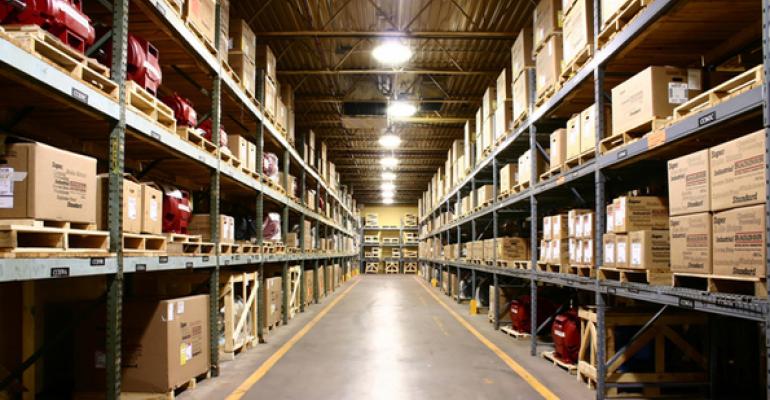Global industrial owner Prologis and private equity giant the Blackstone Group have been aggressively acquiring industrial real estate portfolios over the last year. The acquisitions should provide them with benefits including operational efficiencies and expanded tenant relationships, especially with e-commerce giants like Amazon, notes Al Pontius, senior vice president and national director, office, industrial, healthcare and special asset services, with brokerage firm Marcus & Millichap.
“The larger you are the more you benefit from economies of scale,” he says. “There are clear operational advantages to consolidation, as it minimizes cost per unit in the majority of areas on the expense side.”
Controlling large portfolios of assets also enables owners to form strong relationships with major tenants, giving them a market advantage when tenants need space in another location, Pontius adds.
Prologis agreed to acquire the Industrial Property Trust Inc. (IPT) platform from Denver-based Black Creek Group in an all-cash deal valued at nearly $4 billion last week. The transaction comes just a year after the REIT’s acquisition of rival DCT Industrial Trust for $8.5 billion. The IPT portfolio, which included 236 properties with 37.5 million sq. ft., expands the company's position in Southern California, the San Francisco Bay Area, Chicago, Atlanta, Dallas, Seattle and New Jersey.
In announcing the IPT agreement, Eugene F. Reilly, chief investment officer with Prologis, acknowledged benefits expected from this acquisition. “This is a compelling opportunity to acquire a portfolio of excellent asset quality and submarket composition consistent with our U.S. investment strategy and footprint,” he said. “We expect to capture significant cost and revenue synergies, in addition to enhancing customer relationships and insights.”
Meanwhile, Blackstone agreed to pay $18.7 billion for GLP’s 179-million-sq.-ft. portfolio in June, beating competitor Prologis out of the bidding process. Blackstone had previously owned 55 percent of properties in this portfolio, which it sold to GLP in 2015 for $8.1 billion. According to research firm CoStar, these assets represented $10.2 billion of the total Blackstone paid for the GLP portfolio this time around.
The deal had barely closed when Blackstone began putting portions of the GLP portfolio on the block, including the non-core, non-strategic assets. According to Bloomberg News, Prologis is rumored to be in negotiations with Blackstone for a portion of GLP assets valued about $1 billion.
Other Blackstone industrial acquisitions over the past year included:
- Gramercy Property Trust’s 81-million-sq.-ft. portfolio of mostly single-tenant industrial buildings in New York, New Jersey, South Florida, Los Angeles and Chicago for $7.6 billion;
- A portfolio of 100 assets, with 14 million sq. ft., from the Harvard Endowment Fund for nearly $1 billion;
- Pure Industrial Real Estate’s portfolio of 169 properties across North America, deal that was completed in partnership with Canadian investor Ivanhoe Cambridge, for $3.8 billion; and
- Canyon Industrial’s 22-million-sq.-ft. portfolio for about $1.8 billion.
Although these acquisitions came late in this expansion cycle and real estate analysts, such Deloitte’s Saurabh Mahajan, predict a slowing of growth in industrial demand, these market-leading real estate investors are betting big time on the continued strength of the industrial asset type.
According to real estate services CBRE, the available supply of industrial space in the U.S., including both vacant and occupied space marketed to new tenants, continues to decline—a downward trend that has lasted 34 quarters. Demand for warehouse and distribution properties reached an 18-year high in 2018, CBRE data shows.
These dynamics, coupled with the continued growth in the e-commerce sector and the high cost of new construction, will likely continue to put upward pressure on industrial rents, according to Pontius.
“From a consumer standpoint, e-commerce has substantial legs for growth ahead,” he says. “There’s lots of demand, and barring a major economic hiccup, the convenience of shopping online will continue to grow e-commence and demand for industrial space.”
Many of the individual assets acquired by Prologis and Blackstone likely have upside embedded in lease rollovers, since some of the leases were signed up to 15 years ago. “Market rents on those buildings would be considerably higher today, for even leases signed three years ago, so there’s lots of runway left when you consider value embedded in leases,” Pontius says.

